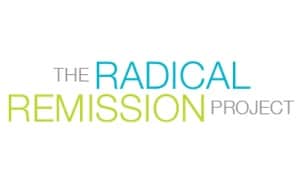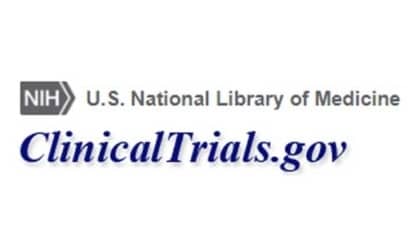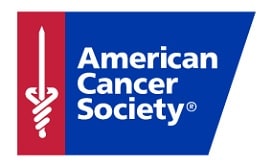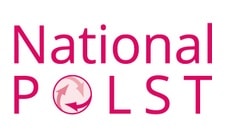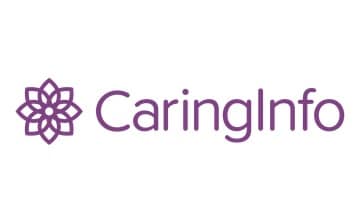A letter from Laura
If you’ve found your way to this page, perhaps you don’t want to take or can’t access the treatment recommended, or maybe you want to stop the treatment you’ve been taking, or you’ve been told there are no more conventional treatments that can cure or control the cancer. Or perhaps you’re a caregiver who is concerned about your loved one foregoing treatments their doctor has advised.
A letter from Laura
In any case, we understand how challenging this situation might be for you and how conflicted and even sad you might feel. We’re not here to tell you what you should or shouldn’t do. Instead, we offer information about choices. We suggest what to think about to help you get clear on what you want to do next and, hopefully, find peace with your decision.
Take a look at the scenarios below and see which one best fits your situation. If none of these seem to fit you, please contact us › and describe your situation in which conventional treatment is not an option.
Which situation sounds most like yours?
Scenario 1: No effective conventional treatments are available for me.
We recognize that it can be very upsetting to hear this from your doctor. You and your oncology team may have been walking the cancer treatment journey, perhaps for a long time. It seemed like there was always some treatment waiting in the wings if your current treatment stopped working. Does this mean there is no more hope? Will I die soon? Will my doctor and treatment team abandon me if there’s no more treatment to give me?
Scenario 2: I don’t want to use conventional cancer treatments.
Over the years, we’ve worked with people who did not want to take any of the conventional treatments recommended by the oncology team. Some prefer to use only “natural” treatments, with concerns that the conventional treatments would be too toxic or otherwise harmful.
Scenario 3: I cannot afford or get access to conventional treatment.
We understand that getting cancer treatment can be expensive and getting to cancer treatment can be a challenge.
Scenario 4: I want to stop conventional treatment. I’m weary of it all.
Recognizing that you are weary and want to stop is very important. Doing so can open the space to listen to your wise self who will help you figure out what matters most now.
Scenario 5: I am putting my faith in God to take care of my cancer.
Ideally, the decision you make for medical treatment based on your faith will bring you peace. If it doesn’t bring you peace, you may want to explore this with your minister, a chaplain, or other spiritual advisor.
If one of the above situations applies to you, then please read on for information that may help you become clear on what you want to do next. Thank you for letting CancerChoices be a guide by your side as you explore what’s right for you now.
Laura Pole, MSN, RN, OCNS
Laura Pole is senior clinical consultant for CancerChoices. Laura is an oncology clinical nurse specialist who has been providing integrative oncology clinical care, navigation, consultation, and education services for over 40 years. She is the co-creator and co-coordinator of the Integrative Oncology Navigation Training at Smith Center for Healing and the Arts in Washington, DC. Laura also manages the “Media Watch Cancer News That You Can Use” listserv for Smith Center/Commonweal. In her role as a palliative care educator and consultant, Laura has served as statewide Respecting Choices Faculty for the Virginia POST (Physician Orders for Scope of Treatment) Collaborative as well as provided statewide professional education on palliative and end-of-life care for the Virginia Association for Hospices and Palliative Care.
For CancerChoices, Laura curates content and research, networks with clinical and organizational partners, brings awareness and education of integrative oncology at professional and patient conferences and programs, and translates research into information relevant to the patient experience as well as clinical practice.
Laura sees her work with CancerChoices as a perfect alignment of all her passions, knowledge and skills in integrative oncology care. She is honored to serve you.
Laura Pole, MSN, RN, OCNS
Laura Pole is senior clinical consultant for CancerChoices. Laura is an oncology clinical nurse specialist who has been providing integrative oncology clinical care, navigation, consultation, and education services for over 40 years. She is the co-creator and co-coordinator of the Integrative Oncology Navigation Training at Smith Center for Healing and the Arts in Washington, DC. Laura also manages the “Media Watch Cancer News That You Can Use” listserv for Smith Center/Commonweal. In her role as a palliative care educator and consultant, Laura has served as statewide Respecting Choices Faculty for the Virginia POST (Physician Orders for Scope of Treatment) Collaborative as well as provided statewide professional education on palliative and end-of-life care for the Virginia Association for Hospices and Palliative Care.
For CancerChoices, Laura curates content and research, networks with clinical and organizational partners, brings awareness and education of integrative oncology at professional and patient conferences and programs, and translates research into information relevant to the patient experience as well as clinical practice.
Laura sees her work with CancerChoices as a perfect alignment of all her passions, knowledge and skills in integrative oncology care. She is honored to serve you.
At a glance
A wide variety of reasons may contribute to why conventional treatments are not an option for you. We explore several scenarios in this handbook and provide some suggestions about how to move forward within each scenario.
Scenario 1: No effective conventional treatments are available for me ›
Scenario 2: I don’t want to use conventional cancer treatments ›
Scenario 3: I cannot afford or get access to conventional treatment ›
Scenario 4: I want to stop conventional treatment. I’m weary of it all ›
Scenario 5: I am putting my faith in God to take care of my cancer ›
Much care is still available outside conventional cancer treatments. Palliativerelieving pain or suffering without dealing with the cause of the condition; palliative care is specialized medical care that focuses on providing patients relief from pain and other symptoms of a serious illness care can increase your comfort and quality of life. Boosting your general health and optimizing your body terrainthe internal conditions of your body, including nutritional status, fitness, blood sugar balance, hormone balance, inflammation and more can make you feel better and perhaps prolong your life. Many self-carelifestyle actions and behaviors that may impact cancer outcomes; examples include eating health-promoting foods, limiting alcohol, increasing physical activity, and managing stress practices and complementaryin cancer care, complementary care involves the use of therapies intended to enhance or add to standard conventional treatments; examples include supplements, mind-body approaches such as yoga or psychosocialtherapy, and acupuncture therapies can be very helpful for these goals.
We’ve seen many documented cases of life extending far beyond expectations and even radical remissions. We believe that even if conventional treatments are not right for you, you can still do much to enrich and perhaps extend your life.
Are radical remissions possible?
We do think some people achieve remissions, maybe even cures, without conventional therapies—we believe these cures are real but rare. Some of these people have used alternative therapies, others made radical changes in their lifestyles and personal lives. Our colleague and advisor Kelly Turner, PhD, studies people who achieved what she calls radical remissions: “a cancer remission that occurs either without conventional medical treatment, after conventional treatment has failed to work, or when conventional and complementary methods are used in conjunction to overcome a dire prognosis.”
Dr. Turner found that those experiencing radical remission had 10 key factors in common, including radically taking control of their health, changing their diet, releasing suppressed emotions and embracing social support. Most of these factors overlap with what CancerChoices advocates: integrating the 7 Lifestyle Practices and healthy lifestyle choices along with conventional and complementary therapies.
Helpful links
What if no effective conventional treatments are available for me?
Your doctor says there’s no effective anticancer treatment available, or you’ve concluded that the harms outweigh the benefits, or the treatment you’re taking has stopped working or is harming you more than helping you.
What does it mean when your doctor says there is nothing more they can do? What might you want to consider now?
If a conventional oncologist says there is nothing more they can do, they often mean no more conventional treatments are available to stop the cancer. That does not mean there is nothing more they can do to help you. Your care team can offer:
- Conventional options to help manage symptoms and improve the quality of your life
- Complementary therapies and self-care practices that may help ease your discomfort and/or possibly slow the cancer
- Clinical trials of experimental therapies or different ways of giving a standard therapy that may possibly extend life. See Experimental treatments › below.
Though the hope for a cure seems less realistic, hope may become grounded in other possibilities, such as feeling better and restoring energy to focus on your life’s purpose; healing your own inner wounds or the wounds between you and a loved one; being in the present moment and relishing truth, beauty and grace; having time to say I love you, I forgive you, please forgive me, and goodbye.
Options beyond cure
Safe and effective complementary therapies and self-care practices may be available to extend life, optimize your body terrain or add to conventional symptom management. The complementary treatment options will depend on your cancer stage, type of cancer, nature of your symptoms, and extent of your symptoms. What therapies you decide to use also depends on your personal goals and values. “One size doesn’t fit all” when considering complementary therapies after conventional treatments are no longer an option.
You may choose to pursue conventional and complementary therapies and self-care practices to manage your symptoms and improve your quality of life. Good symptom management is linked to not only feeling better, but sometimes living far longer than expected.
Good symptom management through the conventional medical system—palliative or hospice care—is always an option, no matter what other treatments you’re using.
You may want guidance in exploring all your options. We suggest questions to ask your doctors and yourself. Look especially at the section on Options ›
Leaving no stone unturned
Some people, upon hearing there are no safe/effective conventional treatment options, want to leave no stone unturned, which can involve the gamut from getting second opinions on the tumor pathology and conventional treatment options, to additional testing of tumor characteristics and behaviors, to researching experimental treatments, off-label use of drugs and intensive body terrain optimization strategies.
This approach involves a lot of research and discernment. We think that enlisting the help of a medical advocate, integrative oncologist, naturopathic oncologist, or integrative oncology navigator could be quite useful.
If no safe, effective conventional anticancer treatment options are available, some people explore alternative therapies. For the most part, the world of alternative cancer treatments is vast, unregulated and not well researched. However, legitimate therapies may be helpful. If this is something you want to look into, please see our guidance below in What do I need to consider in exploring alternative therapies? ›
Experimental treatments
Through careful research and guidance, you may find one or more treatments that may extend your life far beyond a doctors’ expectations. As you weigh your options, keep in mind that these clinical trials may involve significant expense as well as travel and time away from home and your loved ones.
What if I don’t want to use conventional cancer treatments?
We’re not here to tell you whether or not you should take conventional treatment. We’d like, however, to give you some information to consider if you’re thinking about foregoing conventional treatments that have a good track record for curing or controlling your type of cancer.
We suggest you enter this space with this understanding:
There may be serious consequences—including permanent harm—if you pursue alternativein cancer care, alternative practices or therapies such as diets or acupuncture are used instead of conventional treatments such as chemotherapy, surgery, or radiotherapy; if a therapy is used with conventional treatments, it is considered complementary and not alternative therapies instead of conventional treatment or leave your cancer up to fate when potentially curative conventional treatments are available. Choosing to forego conventional therapy may allow your cancer to progress to a stage where cure is no longer possible. We do not encourage you to forego conventional treatment when a cure is your goal and is still possible with treatment.
Having emphasized that, we also advise you to pay attention to your intuition when what a doctor recommends doesn’t seem right for you.
Before deciding
Before you decide for or against cancer treatments that your oncology team recommends, you may want guidance in making decisions. Look especially at the section on Options › If you hear a recommendation that intuitively doesn’t seem right for you, we suggest getting a second opinion, especially from a doctor who has a lot of experience treating your type of cancer.
Take Joan, for example. At the age of 80, Joan had a lumpectomy to remove a very early stage breast cancer. The first oncologist she saw told her she should take hormonal therapy for 5 years to prevent recurrence. Joan wasn’t keen on doing this, especially after seeing the potential side effects. Yet, she was also fearful of the cancer returning. She decided to get a second opinion from an oncologist who specializes in treating women with breast cancer. This doctor advised Joan that it would be reasonable not to take hormonal therapy considering that her tumor had a low risk of recurring at all or at least not before Joan lived out her normal life expectancy. Joan declined hormonal therapy and decided to commit to self care and lifestyle practices that would keep her as healthy as possible and perhaps even reduce her risk of recurrence.
Is fear steering you away from conventional treatments?
Some people don’t want to take conventional therapies because they are afraid of the side effects. If this is your situation, we suggest that you discuss these fears with your oncologist. Many side effects can now be prevented or managed with both conventional and complementary therapies. Naturopathic oncologists and oncology-specialized traditional Chinese medicine practitioners can be invaluable in this situation.
Take Kay, for instance. Kay had surgery for early stage breast cancer but declined the recommended chemotherapy and hormone therapy to prevent recurrence. She had a recurrence five years later and decided to take chemotherapy. In the beginning her side effects were so intense that she nearly stopped treatment. An integrative oncology navigator linked her with a naturopathic oncologist who prescribed natural products and self-care practices. Kay was astonished by how much better she felt and how much more manageable the side effects were.
What do I need to consider in exploring alternative therapies?
Alternative therapies are non-conventional therapies that are used instead of rather than in addition to conventional treatment.
Be wary of those promoting or selling baseless cures
The world of alternative therapies is vast and often unregulated. Unfortunately, some people are all too happy to take advantage of your vulnerability, taking your money and selling you ineffective, possibly unsafe therapies and devices.
Alternative therapies are usually not covered by health insurance. If treatment involves traveling to clinics far from home, travel costs are added to treatment costs.
Telling the difference between legitimate therapies and quack therapies can be very difficult. Here you will find guidance on spotting untrustworthy information and finding sources you can trust.
Use trustworthy guides and sources of information
If you decide against conventional treatment or if no safe/effective conventional treatments are available and you want to pursue alternative therapies, we strongly encourage you to consider working with a naturopathic oncologist or a medical advocate who can help you find legitimate alternative or experimental therapies.
We summarize and evaluate information about complementary therapies as used both with and separate from conventional care.
Helpful link
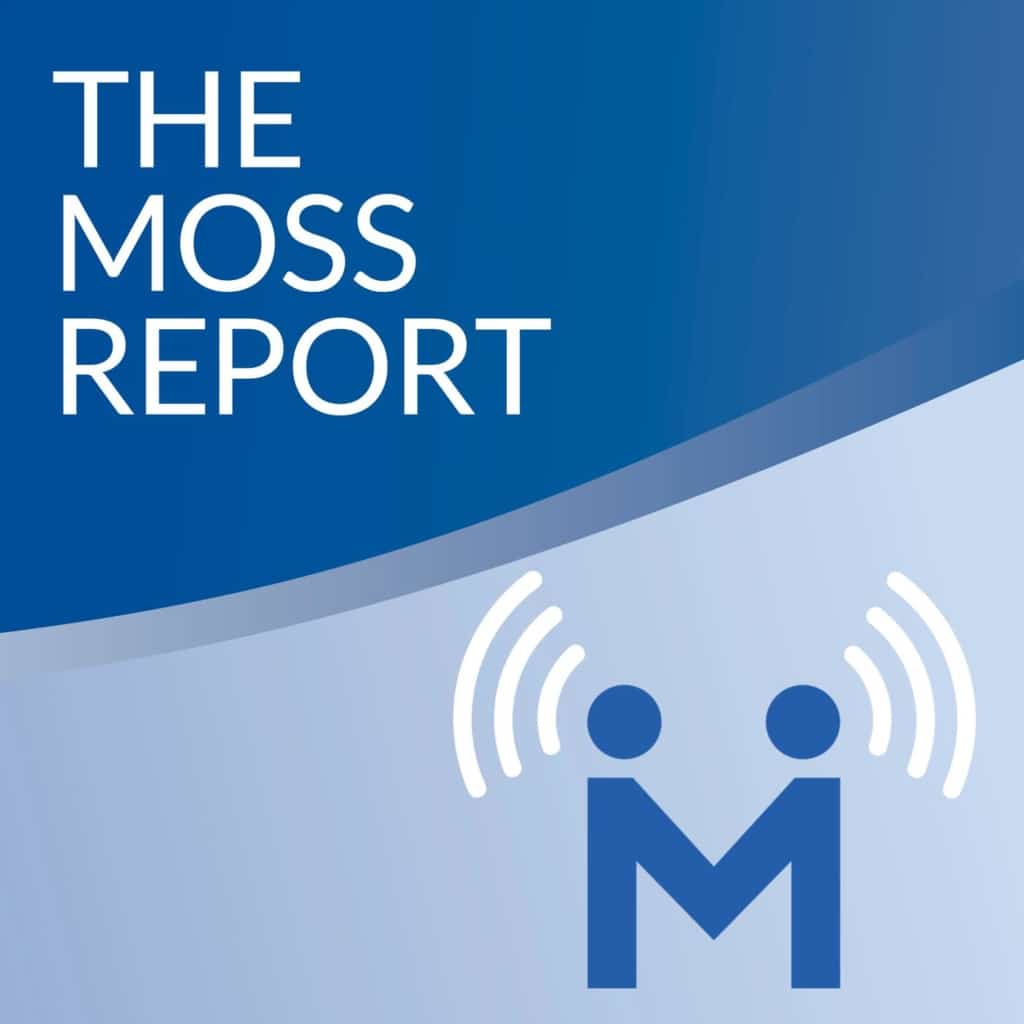
These are some of the best guides we’ve found that review and vet cancer clinics offering experimental and alternative cancer therapies both in the US and internationally. These reports require purchase that may be worth the expense as you consider the safety, effectiveness, and cost of these clinic treatments.
The Moss Reports ›
What if I cannot afford or get access to conventional treatment?
We understand that getting cancer treatment can be expensive and getting to cancer treatment can be a challenge. The cost and logistics of work, childcare, and transportation may be serious barriers that lead some to opting out of treatment altogether. If this is your situation, know that you’re not alone and help is available in getting around these barriers. Ask your doctor to connect you with a social worker, preferably an oncology social worker, or oncology navigator to help you. Our Affordability and Access page includes a list of resources for financial assistance.
What if I want to stop conventional treatment?
My doctor says the treatments are still working or other treatments might work, but I’m weary and just want to stop. What are things I might want to consider now?
Getting clear on what matters most now
Recognizing that you are weary and want to stop is very important. Doing so can open the space to listen to your wise self who will help you figure out what matters most now. If you’re not sure you want to quit treatment for good, you might want to talk to your doctor about taking a break, and use the time to recover your energy and sense of well-being.
After the treatment vacation, you can reevaluate if you want to start up again or stay off the treatment. If you are clear that you want to stop treatment it is absolutely okay to do that.
A wise 93-year-old veteran nurse said to her granddaughter shortly before passing away: “Acceptance is the other side of suffering. It is the willingness to be a conscious human being with all pain and suffering and its flip side—value and meaning.”
We commonly hear, especially from older people, that their loved ones are “pushing” them to “do everything” to stop the cancer, including taking very aggressive chemotherapy that seems likely to do more harm than good. Others may be urging them to try every alternative therapy that shows up in an internet search or is suggested by a well-intentioned friend or family member. We also hear of physicians having a hard time saying there are no more good anticancer treatment options and continuing to prescribe unhelpful and sometimes harmful treatments.
The best of intentions and love often underlie these urgings to leave no stone unturned. But you must choose the path that is right for you.
Re-evaluating goals of care and communicating your wishes
Especially when cancer is advanced, many healthcare professionals and loved ones don’t know how to elicit your values and goals and help you determine how to align these with your care. But these conversations, preferably before a crisis, are absolutely essential in making sure you can live into what matters most to you now.
Engaging your doctor or a palliative/supportive care team can help with these goals of care conversations. The team will include your loved ones in these talks and will care for them as much as for you. Good palliative care will use the best evidence-based therapies to support your comfort and quality of life. These may include many complementary therapies. When people are more comfortable and paying attention to what matters now, they sometimes live longer than those who continue on with unhelpful aggressive treatment.
Helpful links
Learn more about deciding and communicating your values and goals and the care plan that is aligned with your wishes.

Helping people share their wishes through the end of life
Includes What Matters to Me: A Workbook for People with Serious Illness ›
What if I am putting my faith in God to take care of my cancer?
For some, this may mean that you will go on with living your life and not taking any treatments or changing anything because you absolutely trust that God alone will cure your cancer. It is important to know why you made this decision. Is it out of fear that in saying yes to medical treatment means you are not trusting God’s healing power? Are you afraid the medical treatment will be too difficult? Or are you at peace with not seeking medical treatment, even if this means death?
Ideally, the decision you make for medical treatment based on your faith will bring you peace. If it doesn’t bring you peace, you may want to explore this with your minister, a chaplain or other spiritual advisor. Keep in mind, however, that If you have decided not to seek medical treatment, this decision may worry your loved ones who think that also taking the recommended treatment is the best path.
If you are a caregiver and need support in understanding and honoring your loved one’s decisions that you don’t agree with, you may wish to seek counsel from your minister or spiritual guide or a trained advance care planning facilitator. You may also attend a caregiver support group.
If someone else has told you to put your total faith in God and decline treatment, but this doesn’t feel right to you, pay attention to your intuition and doubts. Consider seeking counsel from a minister, chaplain, or spiritual guide who you feel is compassionate, objective, and familiar with guiding people in making healthcare decisions that consider your religious/spiritual beliefs. Chaplains from hospitals or from hospice and palliative care organizations are all experienced in providing this type of counsel.
Considerations
Some people believe that one way God heals disease is by sending people like doctors and nurses to recommend and administer treatments. They see medical professionals as an extension of God’s hands, heart, and mind on earth. Can you think of an example where God helped through those who minister/treat/and care for the sick? We know of many doctors, nurses, and other healthcare professionals who see their healing work as a ministry.
Being diagnosed with cancer is a life-changing experience. As you make treatment decisions, consider talking with your minister/rabbi/imam khatib/spiritual advisor, or a chaplain, parish nurse, or health minister. They can offer you spiritual support as you make treatment decisions. You may also want to talk to someone in your church/synagogue/mosque who went through treatment for cancer or some other serious illness and did well.
Finally, people of faith want to treat their body as a temple, including caring for its physical and spiritual health. Whether you take conventional treatment or not, consider that self-care practices may be a way God enables you to take care of your embodied soul.
Are you a health professional?
Professional commentary
We asked several chaplains for their wisdom and guidance in responding to people who have chosen to put their faith in God for a cure.
Chaplain Keith Little: It’s difficult for me to have a hard-and-fast guideline for people with this belief. I would rather want to explore a few questions with the patient:
- What are their fears about treatments?
- Assess whether they are actually in denial and don’t want to deal with treatments?
- Do they believe cancer is a death sentence?
- Do they know others who underwent treatment and what was their experience?
- Does their church actually teach this approach?
- Do they believe it is a lack of faith to use medicine?
- Have they ever had surgery or used medications for other ailments? Have they ever received treatment from a doctor? Why is this different?
If the patient is a minor, this question can potentially become a legal issue.
Hospice chaplain Seth McCormick: I would highlight how God has given us wisdom to make decisions, and God has given others wisdom and knowledge in fields we will never know about, and therefore we would be wise to heed what others have learned and know in their medical specialty. And of course, part of that wisdom is seeking the help of other trusted spiritual guides, so reminding them to go back to their community and “press in.”
Like Keith, I would want to ask, very carefully and as sensitively as I can, “is this decision to trust in God an act of faith or an attempt to avoid something else?” Even as I write this I hesitate and cringe as that question feels harsh. But I would really want to know, “are you afraid that taking treatments somehow means your faith is “too small” and therefore you won’t be healed?” If this is truly an act of faith, and in line with your theology and your faith-group’s practice, then more power to you and let us join in prayer for your healing!
But if it is not truly an act of worship, if it is not an act of faith, then I would love to encourage them to not just say “I’m letting go and letting God.” From my vantage point that isn’t faith, that’s passivity cloaked in religiosity. My fear is that passivity might cause them to lose out on the myriad ways that God might bless them, challenge them, grow them, and change them.
A well-known Baptist pastor in the Evangelical world has a little pamphlet that he wrote five years after his own cancer journey, and it can be downloaded for free.
Lastly, if I’m being totally honest, I’m not a fan of cliches like “let go and let God” and especially not “God helps those who help themselves.” That last phrase, in my understanding, reading, and Biblical training is not from the Bible even though it is commonly attributed to the Bible. I’ve heard it was originally attributed to Ben Franklin; this article points out that Its source supposedly goes back even further.1Haynes CL. Why ‘God Helps Those Who Help Themselves’ Is Presumed to Be Biblical. Christianity.com. July 7, 2020. Viewed April 21, 2022.
Also see Don’t Waste Your Cancer by John Piper.
Lisa Meyer Vineyard, MDiv, BCC, Spiritual Care Coordinator, Good Samaritan in Roanoke, Virginia: This was often a difficult challenge I faced in the hospital. People would say they were trusting God and not seeking recommended medical treatment. I think it is important for each person to know why they are saying yes or no to treatment.
If they truly have peace of mind and are clear about the risk to not take treatment, this is right for them. I agree with Keith and Seth, it can be out of fear that people make decisions to not treat. Getting clarity can be helpful.
Some additional thoughts:
- It is important to know why you made this decision. Is it out of fear that in saying yes to medical treatment means you are not trusting God’s healing power? Are you afraid the medical treatment will be too difficult? Or are you at peace with not seeking medical treatment, even if this means death? Hopefully, the decision you make for medical treatment based on your faith will bring you peace.
- Medical professionals [can be seen] as an extension of God’s hands, heart, and mind on earth.
- Being diagnosed with cancer is a life-changing experience, as you make treatment decisions, consider talking with your minister/rabbi/imam khatib/spiritual advisor, or a chaplain, parish nurse, or health minister. They can offer you a spiritual support as you make treatment decisions. You may also want to talk to someone in your church/synagogue/mosque who went through treatment for cancer or some other serious illness and did well.
Learn more
References

